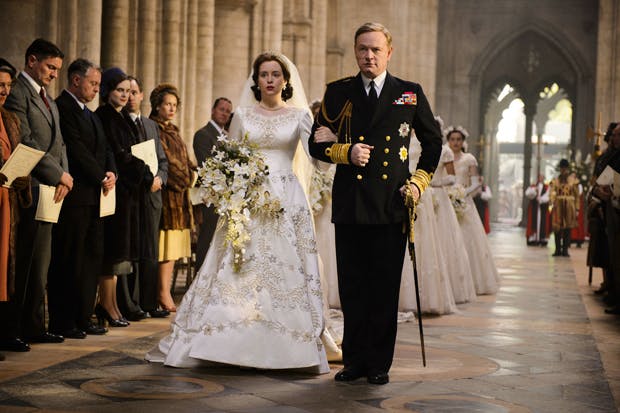I started watching The Crown, the £100-million television series on the early years of the Queen’s reign, on Netflix but turned it off during the second episode because I couldn’t bear the endless coughing by her father, George VI, as he died of lung cancer. The coughing, performed with eager realism by the actor Jared Harris, who played the king, was made harder to bear by the fact that he kept on smoking at the same time. The link between cancer and smoking may not then have been established, but it is well known now; and exposure to both at the same time is not for the squeamish. For me, however, there was another reason for discomfort — the memory of George VI’s death in 1952 when I was 12 years old, a boarder at a prep school in Berkshire. One day the headmaster summoned the whole school to assembly to hear an important announcement. With the utmost gravity, he told us that there was terrible news: the king had died. And all of us children, myself included, promptly burst into tears. We were sobbing away like the people of Thailand when their king, Bhumibol Adulyadej, died last month aged 88, ceding to our Queen the record of being the world’s longest-reigning monarch.
I don’t think that even then we were quite as hysterical as the Thais are in their devotion to their inherited head of state, but those were still nevertheless deferential times. The national anthem was played in cinemas, where film-goers would stand up for it, and I can remember people even standing up in their homes when the national anthem preceded the King’s (and then the Queen’s) radio broadcast on Christmas Day. Those days are long gone. Many people now won’t interrupt their Christmas feasting to watch the Queen on television.
But the monarchy remains popular all the same, and the republican cause, briefly promoted by the Guardian, arouses little enthusiasm. Even Jeremy Corbyn now feels it prudent to sing the words of the national anthem (or at least to give the impression of doing so) as he did at the Remembrance Sunday ceremony at the Cenotaph. And when the Queen led the commemoration by laying the first wreath of poppies at Edwin Lutyens’s splendid war memorial in Whitehall, a majority of us must have felt how lucky we were to have her to do it. There is much to be said for having a non-political, unelected national figurehead to perform such a duty.
In the next four years the United States will have in that role President Donald Trump, whose unsuitability to personify national unity has been well illustrated by the protests of thousands of demonstrators all over the country shouting, ‘He’s not my president.’ Imagine: here it would be like replacing the Queen with Nigel Farage. Was it perhaps fear of a president as divisive as Trump that persuaded the New York Times to publish, three days before the presidential election, an article by Nikolai Tolstoy in praise of the monarchical system? The Anglo-Russian historian Tolstoy is a committed monarchist, the chancellor of the International Monarchist League, and a Brexiteer who has more than once stood for Parliament as a Ukip candidate, but he wasn’t wrong when he wrote that constitutional monarchy had shown itself to be perfectly compatible with democracy and to be a force for stability in other countries. As an example, he cited ‘contented Canada’, America’s northern neighbour. ‘At this unquiet hour,’ he wrote, ‘they [the American people] might well wonder whether — for all the wisdom of the founding fathers — their republican system of government is actually leading them toward that promised “more perfect union”.’
It seems to me that the monarchy has never been more useful to us than it is today, when the country has been split by the EU referendum. If we had a head of state that had taken one or other side in this battle we would be in a sorrier state. But one thing wrong with the monarchy is that we pay too much attention to members of the royal family. Apart from the Queen herself, most of them have become victims of the celebrity culture, and this demeans the institution itself. The less I hear or read about them, the happier I feel; and the less wobbly in my loyalty.
Got something to add? Join the discussion and comment below.
Get 10 issues for just $10
Subscribe to The Spectator Australia today for the next 10 magazine issues, plus full online access, for just $10.













Comments
Don't miss out
Join the conversation with other Spectator Australia readers. Subscribe to leave a comment.
SUBSCRIBEAlready a subscriber? Log in